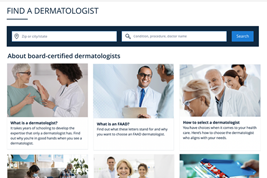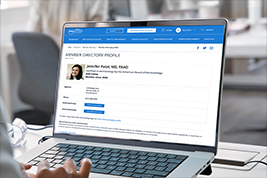COVID-19 skin care and hygiene kits for the homeless
DW Weekly spoke with Tufts University medical student Haya Raef, and Jennifer Tan, MD, dermatology faculty member at Massachusetts General Hospital about their efforts to create COVID-19 skin care and hygiene kits for individuals experiencing homelessness in the Boston and Portland, Maine area.
DW Weekly: Tell us how you got involved in this project.
Dr. Tan: The idea for the kits arose from a project that we’ve developed over the past year. Our patients experience the same common skin conditions that are seen in our general practices, including acne, eczema, and seborrheic dermatitis. Treatment for these conditions often at least partially involves use of over-the-counter products, which is a financial barrier for our patients. Thanks to generous donations and the work of Samantha Guhan, a Harvard medical student, and Neera Nathan, MD, a dermatology resident, we’ve designed diagnosis-specific kits to distribute in conjunction with a newly launched teledermatology initiative with the Boston Health Care for the Homeless Program (BHCHP).
Haya Raef: I was rotating with Dr. Tan at the BHCHP just before the coronavirus pandemic hit. Inspired by the diagnosis-specific skin care kits that Dr. Tan has been assembling, the idea of creating COVID care kits for individuals experiencing homelessness arose. The spread of COVID-19 has exacerbated many of the unique challenges that homeless communities already face. Patients are unable to socially distance and have limited access to hygienic supplies. We wanted to address the disparities that fall upon this population, by providing them with the necessities they lack. We reached out to BHCHP and the Preble Street Learning Collaborative (PSLC) to see if they would welcome the kits, and immediately got to work!
DW Weekly: Can you describe the homeless situation in your area at this time?
Dr. Tan: People experiencing homelessness have been hit severely during the recent COVID surge due to the inability to socially distance and self-quarantine. To create safe spaces for the population to quarantine and recover, BHCHP has opened medical tents, isolation facilities, and dorm space, and recently converted the Boston Seaport Convention Center into a hospital. The latter, called the Boston Hope Medical Center, is a collaborative effort between Partners Health Care, BHCHP, the City of Boston, and the Commonwealth of Massachusetts. It is a remarkable 1,000-bed facility which has allocated half of the beds for people experiencing homelessness and needing isolation. Our kits are part of the welcome package for patients.
Haya Raef: Some local shelters are unable to accept any new guests because of shelter-based outbreaks, and so many people are being turned to the streets. Dr. Tan and I recognized the growing need for overall hygienic care and decided to include items in the kits that could help to slow disease spread and make patients feel more comfortable.
DW Weekly: What are you including in your kits?
Dr. Tan: The kits consist of soap, hand sanitizer, moisturizer, dental care products, puzzles, ear

DW Weekly: I understand you were also including puzzles and activities in the kits?
Haya Raef: We included adult activity books in the kits, such as Sudoku or crossword puzzles, to help patients cope with loneliness and isolation during this stressful time, especially those in quarantine tents. We’ve also included earbuds, so patients may listen to their phones or borrowed Kindles/iPads for entertainment. We were happy to hear that these inclusions were particularly appreciated by the patients!
DW Weekly: Have you seen the impact of this project?
Haya Raef: We were thrilled to hear that the COVID care kits have been well received by
DW Weekly: What has been the impact of these community efforts?
Haya Raef: Provision of these kits helps promote self-care and ensures that marginalized communities feel cared for during times of crisis when they are often forgotten or overlooked.
Dr. Tan: I recently had a follow-up virtual visit with a patient who spent some time in one of the isolation tents and she mentioned that the welcome kit really resonated with her. It reminded her that she wasn’t alone and that others were thinking about her well-being. Her particular kit was actually constructed by one of Dr. Jen Huang’s daughters and included a hand-written “get well soon” note; she said that this touched her heart and helped with her healing process.
DW Weekly: What are you learning from this experience and what would you say to encourage others to do something like this in their own community?
Dr. Tan: This pandemic has reinforced how fortunate I am to have an abundance of basic human needs such as food, shelter, safety, and love. At times like this, we need to take care of each other and particularly our neighbors who are the most vulnerable in whatever way we can. I deeply appreciate the efforts of health care providers who are working on the front lines, including our dermatology colleagues who have been re-deployed to other areas of medicine. For those of us who are working remotely, we should be looking for ways to help each other. It’s just the right thing to do.
Haya Raef: The project can be time-consuming, but is definitely very rewarding! As a medical student, I have been temporarily pulled out of the clinical setting because of the coronavirus, and so it was important for me to find other ways I could contribute to the community. We’ve also enlisted help from medical students and family members and have found “kit assembly time” to be a great way to collectively share a volunteer experience and contribute to our neighbors in greatest need.
Haya Raef is a medical student at Tufts University School of Medicine, Class of 2021. Jennifer Tan, MD, is a dermatology faculty member at Massachusetts General Hospital.
Are you on the front lines managing COVID-19 patients? Share your story with DWW. Email dweditor@aad.org.
The American Academy of Dermatology is a non-profit professional organization and does not endorse companies or products. Advertising helps support our mission.
Opportunities
 Find a Dermatologist
Find a Dermatologist
 Member directory
Member directory
 AAD Learning Center
AAD Learning Center
 2026 AAD Annual Meeting
2026 AAD Annual Meeting
 Need coding help?
Need coding help?
 Reduce burdens
Reduce burdens
 Clinical guidelines
Clinical guidelines
 Why use AAD measures?
Why use AAD measures?
 Latest news
Latest news
 New insights
New insights
 Physician wellness
Physician wellness
 Joining or selling a practice?
Joining or selling a practice?
 Promote the specialty
Promote the specialty
 Advocacy priorities
Advocacy priorities
